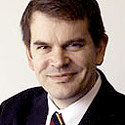02:45 PM
5 Red Hot Summer Market Predictions
As scandals continue to dog capital markets -- from FX and Libor fixing to dishonest dark pools -- I predict that we will see even more newsworthy crises before the end of 2014.
I am breaking with the end-of-year prediction tradition because there are some startling events looming in capital markets that could happen before the end of this year.
Here are my five predictions for the second half of 2014:
1. Algorithmic terrorists will infiltrate a hedge fund (and no one will know they are there).
After BAE Systems reported last month that hackers had infiltrated a hedge fund (and then retracted the report, saying it was just an "illustrative scenario"), attention shifted from bad behavior inside financial services firms to bad things coming from the outside. The scenario -- where hackers insert malicious software into a large hedge fund's order management system -- is indeed plausible.
Algorithmic terrorists could attack a financial services firm, front run its trades, and scoop hundreds of millions of dollars over time. These terrorists could work under the radar for months, or even years, before anyone knew they were there.
2. A price fixing scandal will hit the precious metals market.
Foreign exchange and interest rates are not the only markets that are vulnerable to fraud and manipulation. Any market where human beings contribute to the pricing is subject to manipulation, and markets with a fixing "window" even more so.
Precious metals tend to be niche, opaque markets where prices are fixed during the day by a panel of banks. That leaves gold and silver prices terribly exposed. And it is a big, tempting market. A 2011 London Bullion Market Association survey (subscription required) pegged the gold spot and forwards market's trading volume alone at $240 billion a day.
Until a better way of pricing is established, precious metals remain extremely vulnerable to manipulation.
3. The SEC's Mary Jo White will sober up the market with her 13-step program.
Securities and Exchange Commission Chairwoman Mary Jo White has given some thought to capital markets lately and has come up with a 13-step program to cure what ails them. Like a 12-step addiction recovery program, White's plan is tackling the market's dependency on opacity and speed to return it to a healthy state for investors.
The 13 steps will go far to sober up capital markets participants, who are already a bit shaken by New York Attorney General Eric Schneiderman's less gentle stirring.
4. A hedge fund will manage $100 billion in assets with only one employee.
We saw an algorithm become a board member when the venture capital firm Deep Knowledge Ventures appointed Vital to its board. So it is not much of a stretch to imagine that algos could be hired to do a number of jobs in financial services firms -- possibly making humans redundant.
Artificial intelligence can be applied to algorithms, making them smart enough to make trading decision or settle orders and monitor transactions for anomalies and fraud. A smart hedge fund could manage with one human employee to determine its trading strategies -- that is, unless the algos go rogue and declare their own Independence Day.
5. Many dark pools will evaporate under the heat of recent scandals, and the rest will merge.
The dark pool bandwagon, upon which 40 alternative trading systems have jumped, may have had its heyday. After Schneiderman dinged Barclays' dark pool (subscription required), the gild seems to have flaked off the dark liquidity lily. Barclays followed the now-defunct Pipeline Trading in misleading investors who thought it was safe to swim in these pools -- all the while inviting the sharks in to play.
Part of White's 13-step program is to make HFT and off-exchange trading more transparent. Shining light into dark pools will send the sharks toward the exit, but the remaining investors may not get the liquidity they want. There will be some major consolidation of dark pools, and many will simply close.
Dr. John Bates is a Member of the Group Executive Board and Chief Technology Officer at Software AG, responsible for Intelligent Business Operations and Big Data strategies. Until July 2013, John was Executive Vice President and Corporate Chief Technology Officer at Progress ... View Full Bio

















